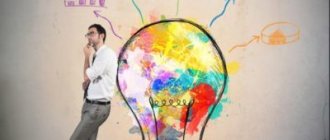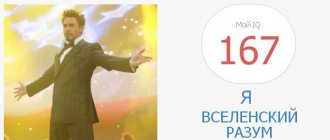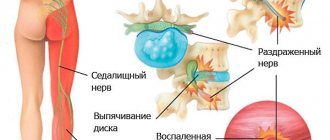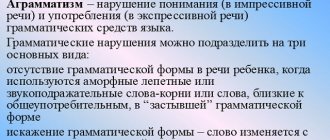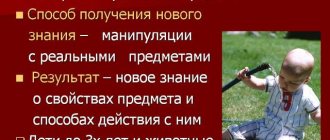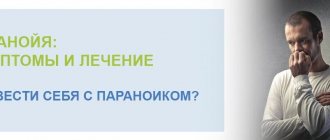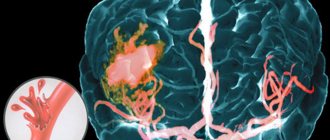Analytics and people
Some people have good analytical skills from childhood. This is due to the fact that the left hemisphere of their brain is dominant over the right. It is what is responsible for this type of thinking. But those who are not inclined to analytics from birth should not be upset, because... When performing certain exercises, analytical capabilities will quickly increase.
Analytical thinking is responsible for several important points:
- Detailed analysis of current events, as well as various phenomena;
- Determining prospects and all subsequent events from certain actions;
- Construction of logical chains;
- Identification of advantages or disadvantages in any phenomena;
- Ability to separate major details from minor ones;
- Solving everyday problems or tasks;
- The ability to reason correctly and express thoughts;
- Correct time planning, maintaining work sequence;
- Clarity of any logical conclusions;
- Making the right decisions.
People with well-developed analytical skills are very effective and easily achieve any goals. It is much easier for them to communicate with others, they can boast of good logic and observation, which seriously helps in everyday life and work. Calculating any task several steps ahead is the simplest task for such a person. It is these benefits that make people think about ways to improve themselves.
Analytical thinking is closely related to critical thinking. When combined, both types become even more effective. They give a person the opportunity to objectively assess what is happening around him, quickly find solutions, and also see shortcomings where others do not notice them. They often actively interact with logical thinking, which allows them to find patterns, anticipate future events in advance, and clearly justify their position on any issue. Their combination makes a person very smart.
Developed analytical skills can be useful in many professions. They are most significant for: managers, economists, political scientists, analysts, programmers, lawyers, investigators and IT workers.
What does it look like
Testing for information analysis includes verbal, logical and numerical sections.
Numerical examples
are used to determine the ability to operate with numbers and make simple calculations (percentages, fractions, proportions).
An example of a test for analyzing numerical information:
Go throughGet ready
Verbal tasks
consist of a short text (100-150 words) and a statement. The applicant is required to determine whether the given statement is “false” or “true.” Texts on medical, scientific, legal or economic topics are used. One text is given 30-60 seconds, so it is not easy to determine whether the specified statement corresponds to the text.
Example of a verbal reasoning test:
Go throughGet ready
Logical or abstract logical problems
consist of a series of abstract images. The pictures depict geometric shapes changing according to certain patterns. Geometric shapes rotate around an axis, and other shapes, lines, and points are added to them. The test taker’s task is to determine the logical connection and find the correct answer from 3-5 options.
An example of a logical analysis test:
Go throughGet ready
Another analytical test used is mechanical understanding, which requires knowledge of basic physical laws and cause-and-effect relationships.
Example of a mechanical analysis test:
Go throughGet ready
comment
The applicant may work worse with texts than with mathematics or physics, but the final test result will show his overall level of ability to analyze information.
Literature
Great benefits can be gained from reading good literature. People who read a lot stand out from others with their erudition, the ability to speak beautifully, a wide vocabulary, and also success. With the help of books you can even influence the quality of analytical thinking. Moreover, there is no need to read complex specialized literature, because You can train such skills with the help of works of art. But this does not mean that you should abandon popular science books. What books should you read to develop analytical thinking:
- “Engineering Heuristics” (D. Gavrilov) is a book about thinking that helps you learn to think correctly, solve complex problems, and draw conclusions.
- “Logic and tactical thinking” (C. Phillips) - allows you to qualitatively train your brain to correctly solve any issues.
- "Book of Solutions. 50 models of strategic thinking" (M. Krogerus, R. Tscheppeler) is a book that helps you find solutions in any situation.
You can also read other books that teach you about the brain and thinking or challenge you to solve complex problems. From fiction, it is worth paying attention to the works of R. Bradbury, A. Christie or A. K. Doyle. All of them will help in developing analytical skills and discovering new talents.
While reading fiction, you should analyze the actions of the characters and also think about why they did what they did. Additionally, you can think about how events would have developed if the character had acted differently.
Development of analytical skills
When hiring employees, employers often list analytical skills as essential. And this is not without reason - today, workers of many professions need to be able to work with large volumes of data, analyze and highlight the main thing. Project management, report writing, technical problem solving, and even conversational skills are just a few of the areas where analytical skills are needed. If you think this is boring and dull, then know that developed creative thinking also requires these skills.
How strong are your analytical problem-solving skills? Not too sure about your answer? With regular practice they can be strengthened and developed. Let's talk about this next.
What are Analytical Skills
Analytical skills are the ability to visualize, formulate, conceptualize, and resolve problem situations by making intelligent decisions based on available information. Here is a short list of skills and abilities that constitute and at the same time contribute to the development of analytical skills.
Break problems down into their component parts
Many people get stuck when trying to solve a big problem. Analytical skills help you break problems down into smaller pieces that are easier to solve. This saves time and energy.
Collect and evaluate information
Also known as information literacy, this skill allows you to separate the wheat from the chaff. In a literal sense, this is the ability to select and operate with relevant and correct information, work with sources, and draw informed conclusions.
Manage information effectively
Today it is important to be able to manage a large amount of information. This skill set includes both direct information processing and strong organizational skills.
Look for alternatives and solutions
Over time, every person realizes that there are many paths leading to success in life and business. With strong analytical skills, you will be equipped with an effective tool for finding solutions and alternatives.
Read difficult books and absorb difficult information
It is necessary to read and understand complex material from time to time. For example, this could be a technical document that explains how to use the application.
In general, analytical skills are used in the following situations:
- To solve complex problems
- Making informed decisions
- Generalizations of statistical data
- Identifying trends
- Process ordering
- Effective project execution
- Problem analysis and diagnosis
- For research or data analysis
If you are not a scientist, detective, or mathematician, what use are analytical skills to you? In your personal life, you can identify trends and patterns of behavior in order to better recognize yourself and the world around you, communicate effectively with people, conduct life experiments, and explain your point of view.
When you learn to think analytically, you will automatically improve your critical and creative thinking skills. You will also be valued by employers for your ability to solve complex problems. We will cover the last point separately.
What questions are asked at an interview?
Here are some typical interview questions to test a candidate's analytical skills.
- What steps do you need to take to study the problem and then make the right decision?
- Tell me about a time in your previous job where you discovered a more efficient method for completing a typical task.
- Can you give me an example of a small problem that you identified and solved before it became a major problem?
- Describe problems you have encountered previously that required analytical skills.
- Think of a problematic situation that requires a quick solution. How did you resolve it?
- Have there been times when your analysis of a situation and the decision you made made it worse and you failed? What would you do differently now?
- What is the most difficult analytical task you have ever completed?
The answers to these questions will partly determine whether you will be hired. Moreover, what will be assessed is not so much your experience as your ability to reason right now: the construction of phrases, logic in narration and the ability to make correct conclusions.
12 Principles of Analytical Thinking
Follow these principles when you encounter a problem and try to find an effective solution:
- Collect information that is related to the topic or problem.
- Focus on facts and evidence, not opinions and speculation.
- Study the information carefully.
- Give a precise definition of the problem.
- Use logic.
- Break complex information into simple chunks.
- Look for patterns and identify trends.
- Determine cause and effect.
- Learn to understand the connections between concepts and their interrelationships.
- Eliminate unnecessary and extraneous information.
- Organize your information.
- Draw informed conclusions.
Some problems do not require following these principles because they are too simple and obvious. Others are complex and take a very long time to resolve. But by following these principles, you significantly increase your chances of ultimate success.
How to develop analytical skills
Play analysis games
There are many games that can help you improve your analytical skills. Some of the most popular:
- Chess
- Puzzles
- Backgammon
- Sudoku
- Various puzzles
There are many online games, exercises and simulators for developing analytical thinking. These are available, for example, in our Cognitive Science program, and are also included in the PRO functionality.
Make lists, mind maps and tables
We all face a lot of problems, most of which are related to each other. How not to get confused in this array of information and how to see intersections and trends? There are lists, mental maps and tables for this. These practical tools will help you manage yourself and become more organized.
You can train your analytical skills by creating lists like these:
- List of your values and life rules
- To-do list
- List of things not to do
- Reading list
- List of films
- List of habits you need to instill in yourself
- List of habits to break
In the same way, you can create tables of your expenses and income or diet. Think about an area of your life where there is a large amount of information and categories. Then create a table or graph to make it easier.
You can learn more about mental maps from the article.
Use the Five Whys Technique
This simple and powerful technique will allow you to focus on what really matters.
Find the root cause of the problem. Ask yourself the question “Why?” whenever you are faced with something unclear or difficult. The reason may be hidden so deeply that it takes a very long time to dig to find it. For example, the reason for poor sales may not be the quality of services or goods, but that the site takes a long time to load or applications take a long time to process.
Use the SWOT technique
Created by Albert Humphrey back in the 1960s, the tool has stood the test of time and remains just as useful. You can use it in two ways - as a simple icebreaker to help a team come together to start developing a strategy, or in a more complex way, as a serious tool for solving a whole range of problems.
Using this technique, you create an entire strategy rather than trying to fight one problem.
Let's see how you can use this analytical tool for self-development.
Strengths
Ask yourself the following questions:
- What are your advantages?
- What do you do better than anyone else?
- What unique and cheap resources can you use?
- What do other people consider your strengths?
By answering them, you will be able to assess your personality in terms of skills.
Weak sides
Answer the following questions:
- What can you improve about yourself?
- What should you avoid?
- What do other people consider your shortcomings?
The third question is especially important. We are so used to knowing everything about ourselves that we ignore the opinions of others. From the outside, some problems are easier to notice.
Possibilities
Answer the following questions:
- What opportunities do you have at the moment?
- Is it possible to turn your shortcomings into advantages?
- What global trends in self-development exist and what can be used?
To see opportunities, you need to examine a lot of information, classify it and draw conclusions. The concept of "trend" means that you carefully study the whole picture and try to find something common in it.
Threats
Answer the following questions:
- What threats do you face?
- Will your skills and knowledge be in demand in 5 years?
- Will technological change hurt your life and career?
- Do you have any debts?
Be realistic and rigorous when conducting your analysis. The more honest the answers are, the more correct conclusions you can draw.
The SWOT tool can also be used when analyzing and creating a strategy for your business.
Learn to program
Knowing how to “talk” to machines is one of the most valuable skills a person can have today. Coding also improves cognitive and analytical skills.
Everything we talked about in this article comes into play when writing code.
Play the game "Argument - Counterargument"
You don't even need a partner for this, although it is advisable. Write down on a piece of paper all your beliefs or opinions that you are confident in. Support all this with arguments. Now find ten counterarguments for each of them. Try to defend the opposing point of view.
Here's what you'll achieve by doing this exercise, according to Scott Fitzgerald: "You'll pass the test of first-rate intelligence when you can hold two opposing ideas in your mind and still retain the ability to think."
Experiment regularly
Become a scientist of sorts who conducts experiments, collecting all kinds of information. Write down your assumptions about how you intend to prove or disprove the theory, and then carry them out.
For example, find out how to behave in a conflict in order to resolve it. Can:
- Respond to reproach with reproach
- Keep calm
- To ask questions
- Tell jokes
- Refrain from criticism
Each such action has its consequences. Write down in detail what this or that tactic led to. Analyze what all this could mean. This will help you find effective ways to communicate with other people.
Look through 100 articles on a specific topic and write down the main ideas
This is a great exercise for getting a big picture of a certain topic and broadening your horizons. As you review articles, look for recurring and unique ideas in structure, semantics, and clarity of language.
Imagine that after completing the work you will have dozens of points of view on one issue. You don't have to agree with them, it's important to know that they exist. This gives a huge advantage in debate and defending your point of view.
Analyze what's happening in a room full of people
Especially if you don't know them. Analyze the relationships between them, intentions, certain words and gestures. Imagine yourself as a detective trying to figure out what's going on in the room. You can play this game in a club, in a waiting room, or anywhere you find yourself in a group of people.
Describe the various processes in your life
Want to keep your memory as fresh as possible throughout the day? One way to achieve this is to analyze the processes that happen to you during the day. Everything is important: actions, phrases, events, behavior, conflicts.
When you collect information, do not try to interpret it in any way. Just write it down. At the end of the week, certain conclusions can be drawn. This way, you will improve your analytical skills and also begin to understand what is happening in your life.
Create a strategy for your life
The greatest commanders were strategists and had excellent analytical skills. They constantly changed their perspective and looked at the situation either in detail or as a big picture.
To play any strategy game, you must understand the rules (and which ones you can break), the other players, and their goals. It will take a smart strategy to get what you want. Sometimes you have to sacrifice momentary pleasure. But take some inspiration from the fact that all the greats have done it. They knew how to endure and wait in order to appear on stage at the most important moment.
Other tips
The methods listed and described above for developing analytical abilities are the most common. Here is a list of additional tips:
- Try to draw an idea or problem that you are currently thinking about.
- Try making graphs of different trends by year or month.
- List the various arguments for implementing any of your ideas.
- Explain complex concepts in simple terms using metaphors and analogies.
- Create pros and cons lists for any decision.
The more you practice, the more your brain becomes accustomed to analytical thinking. Don't forget that practice makes perfect.
Books
Developing analytical skills requires reading, especially complex reading. The following books will help you take it to the next level. Remember: it will be hard.
- “How people think” Dmitry Chernyshev.
- “Brain development. How to Read Faster, Remember Better, and Achieve Bigger Goals by Roger Sipe.
- The Puzzles of Sherlock Holmes by Richard W. Galland.
- "Teach Your Brain to Work" by Matthew MacDonald.
- “The Japanese System for the Development of Intelligence and Memory” by Ryuta Kawashima.
- “Charge for the brain. Raise your IQ" Joel Levy.
- “5 minutes to think” by Ian Perelman.
- "Quick Count" by Ian Perelman.
- “Entertaining tasks and experiments” Ian Perelman.
- "Developing Critical Thinking" by Diana Halpern.
Creativity will help you get brilliant ideas, create impressive things and be unique. They will help you stand out. But creative efforts and innovation must always be backed by the right strategy and perfect execution. This is when your analytical skills come in handy. They are the basis for building a flexible plan and feedback mechanism that will allow even the most complex and improbable decisions to be realized.
We wish you good luck!
We also recommend reading:
- Storytelling
- Benefits of Critical Thinking
- TRIZ and design thinking in everyday life
- 5 Reasons to Quit Your Analytical Thinking
- Soft skills for employment: how to interest an employer
- Nine Academic Soft Skills
- Best Interview Questions
- What are cognitive abilities
- The skills required in the 21st century for any good job
- Simple ways to improve your analytical skills
- Behavioral questions in a modern interview
Key words:1Cognitive science
Intellectual training
You can also develop analytical skills at home with the help of intellectual puzzles. These can be both complex exercises and easy puzzles. This option can be used by both teenagers and adults. But for small children it will be too difficult.
Basic techniques:
- Mathematics. Solving various problems, performing complex algebraic operations, counting in your head, passing tests - all this has a direct impact on analytical thinking.
- Puzzles. Rebuses, ciphers, crosswords or other types of puzzles are very effective for the human brain. They can be used from an early age.
- Chess. With the help of chess you can greatly develop your brain. If it is not possible to play with a real opponent, then you can use the help of artificial intelligence or solve special tasks.
- Programming. Learning the features of programming brings good results, but may be too difficult for teenagers, which is why it is best used among adults.
Developing analytical skills using this method allows you to achieve good results in a short period of time. But this will require developing strict discipline and not missing classes.
It is possible to improve analytical thinking in adolescents through a serious approach to school lessons and regular homework.
Tips for passing
Logical thinking is useful for engineers, marketers, auditors and programmers. Companies use the ideation test to select the best employees in the market and form a talent pool. If an applicant receives a weak result on standard numerical or verbal tasks, it will be difficult for him to compete for the vacancy.
- Practice.
With each problem solved, the skill improves, eventually reaching automaticity. The more examples the applicant solves, the better. For this purpose, training tests have been created, in which they train online, comparing their results with the results of other users. After completing the training test, each task is given a detailed commentary on the solution, and advice on how to pass such tasks. - Studying information.
Companies use online analytical tests from different developers. For example, Talent Q uses an adaptive principle for generating tasks. The complexity of the next question depends on how correctly the respondent answered the question. Information about what tests are expected of candidates in a particular company is sought on specialized forums on the Internet or on social networks. But you won’t be able to find or download the correct answers: each candidate receives a unique “set” of problems. - Creation of suitable conditions.
Testing is carried out from home, but it is recommended to ensure peace and quiet before starting. As a rule, the period given for testing is a week, so it is better to choose a time when no one is at home. On the contrary, it is better to train in noisy places where a person is affected by many distractions.
Games
The best way to improve analytical thinking in primary schoolchildren is through various games. They help you develop while having fun. If a child does not want to engage in any type of activity, or he simply does not like a certain game, then there is no need to force him, because in this case there will be no benefit.
What games will be effective:
- Quests. You can come up with a variety of quest options, but for a small child you should give preference to the simplest ones. For example, draw a map of the yard for him, according to which he will have to find treasures hidden by his parents.
- Puzzles. Finding the right elements and gradually assembling the big picture involves not only thinking, but also a person's attention. Schoolchildren should choose images that are not too large, with no more than 500 details.
- Board games. You can improve your analytical skills only in those board games where all participants are required to think about their decisions or calculate future steps. This option is perfect for the whole family.
Game-based development is very effective, which is why it is practiced by many parents. You just need to choose the right games for your child.
How to Determine a Technical Mindset
Psychologists define the mathematical mindset of practicing psychologists in an unusual way. The tester suggests clasping both hands and leaving them in that position.
Researchers believe that the right hemisphere of the brain works in the area:
- intuition;
- visualization;
- creativity.
The left hemisphere works in a different mode:
- logic;
- sequences;
- analysts.
Each person has both hemispheres working. But still one thing always prevails somewhat. According to the theory, if the thumb of your right hand is in the lock of clasped hands on top, this means that your left hemisphere is working more. That is, your logic is stronger than intuition, your mentality is technical.
If the test person’s left thumb were on top of the woven lock, this would mean that the right hemisphere, which is responsible for imagery and creativity, is working more.
Another easy way to determine which hemisphere works better for you. To do this, you need to imagine that you are taking aim to shoot from an imaginary pistol. Notice which eye is squinted? If your right eye remains open, it is the dominant one, which means your left analytical hemisphere works better. If the left eye remains open, the right creative hemisphere is working.
But you shouldn’t think that all people are divided strictly according to the functioning of their hemispheres. Many have equally developed abilities in mathematics and literature. This is especially noticeable in Russia. Residents of other countries, who are too fixated on the narrow specialization of a person, are constantly surprised that Russians can do everything.
This diversified development of people is obviously related to the harsh climate in which they live. To simply survive in harsh conditions, a person needs to be able and know a lot.
Modeling
Adults often have no time to engage in their own development. In such cases, modeling will help. It allows you to train your thinking in a short period of time, while solving important problems. You can use the method even on the way to work or while taking a shower.
How to apply it:
- Select one of the existing problems that could not be solved earlier.
- Try to quickly find all the options for solving it, and then stop at one.
- Think thoroughly about the problem (why it appeared, whether it needs to be solved, what consequences may arise, whether there will be advantages from eliminating it).
- Make a final decision.
- Perform a detailed analysis, calculating the likely outcome of events when implementing the chosen solution to the problem.
Developing analytical thinking in this way allows you to achieve good results. However, to do this you need to be able to focus on one thought and bring all your affairs to the end. In this case, you will need to allocate enough time to think about decisions.
If desired, you can simulate unusual situations or problems that you have never encountered. In some cases, this option may be even more effective.
Workouts in everyday life
You can develop this type of thinking without much effort if you include some gentle exercises in your daily life. They can be used at any time. The main condition for achieving the effect will be the regularity of these trainings.
How you can train analytical skills:
- Search for patterns. You should always try to find any patterns. This applies to work or study, as well as all household chores.
- Formation of useful habits. Trying to develop habits has a positive effect on the brain. If at the same time they are connected with thinking (reading, mental arithmetic, inferences), then a double effect will be obtained.
- Action analysis. You should consider the actions of absolutely everyone you encounter in life. It is recommended to analyze even characters from movies or books.
- Thinking through the past, present, future. You need to think about why an event happened, how else it could have ended, what it will lead to in the future.
- Planning a conversation. During a conversation, you should think in advance what this or that phrase will lead to, and decide what is best to say. If you manage to develop this skill, you will become a very pleasant person to talk to.
Regularly performing such exercises will allow you to achieve the desired result. But even after this, you should not stop training to maintain your thinking.
Analytical thinking: what is it?
Analytical thinking is necessary for better understanding, memorization, processing information in the mind, remembering it and then recalling and applying it in practice. People with an analytical mindset are able to make plans, forecasts, make accurate and thoughtful decisions based on their past experience, which is highly valued by many employers. This kind of thinking needs to be developed to plan your future based on an analysis of past successes and failures in life.
It includes two main processes:
- formal , in which a person analyzes information, synthesizes it, draws conclusions and consolidates the results in his memory. This process is based on the laws of physics and mathematics, which are characterized by clear structural properties and characteristics of material objects and objects.
- creative , during which a person searches for new information. It is distinguished by the ability to perceive aspects of the intangible world that are outside of human experience and knowledge (intuition).
IMPORTANT! The analytical type of thinking is based on a comprehensive and systematic study of issues and problems that have certain criteria. This type of thinking is characterized by careful and methodical work with the details of the problem.
Analytics skills are necessary to remember information, analyze it in order to draw conclusions and make decisions. In particular, it helps:
- solve complex everyday and professional problems;
- quickly identify the main and secondary, pros and cons in events;
- systematize the experience gained;
- create conclusions based on the information received;
- plan your future activities based on decisions;
- divide the process of achieving a goal into stages and carry them out sequentially.
